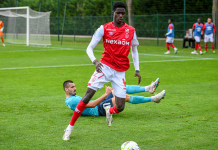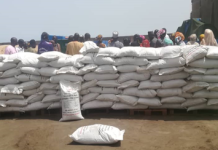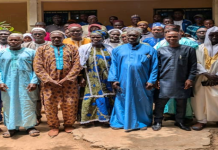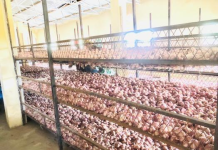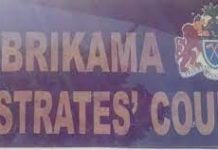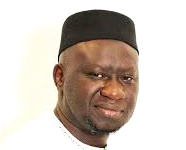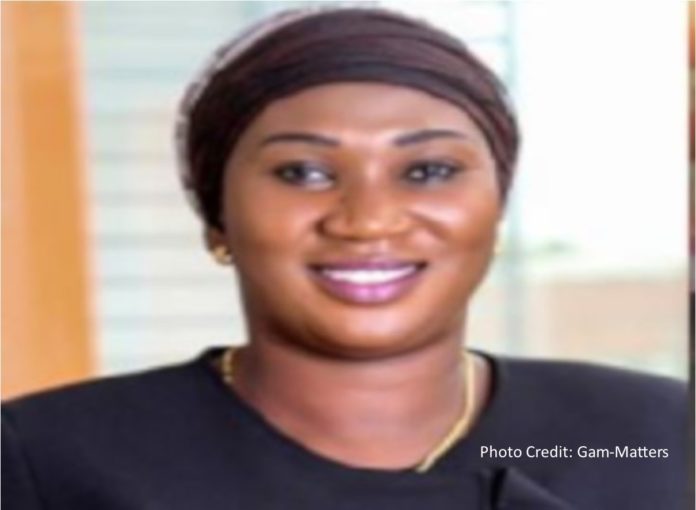By Yankuba Jallow
Deyda Hydara’s co-victim of gunshot attack in December 2004, Niang Sarang Jobe has written to Foroyaa indicating she will continue in her search for justice despite the high court ruled against her.
“I affirm my resolve to ensure that adequate redress is provided to me for the fundamental harm I have suffered as a result of the Deyda Hydara Shooting incident, as far as possible,” Niang Sarang said.
On the 18th November 2018, Niang Sarang Jobe brought a case before the High Court seeking an order for Mandamus compelling the Government of The Gambia through the Attorney General to provide her adequate compensation. The application was supported by a 12-paragraph affidavit sworn to by Niang Sarang Jobe.
Niang Sarang was in a vehicle together with Deyda Hydara (of blessed memory), and one Ida Jagne on the night of the 16th December 2004, when they were attacked by unknown gunmen. Deyda Hydara, who was the editor and co-founder of The Point Newspaper died during the attack, whilst she (Jobe) sustained serious bullet injuries. As a result of the injuries, she was incapacitated and could not engage in gainful employment for seven years.
On Thursday, the 27th day of May 2020 the High Court presided over by Justice Sainabou Wadda Cisse struck out the case of Niang Sarang Jobe versus the Attorney General. In the said case, Niang Sarang had sought for the court to compel the government of The Gambia to provide her with adequate compensation as a direct victim of the Deyda Hydara shooting incident, as they did with indirect victims of the same transaction.
She said she has instructed her lawyer, Malick H.B. Jallow to lodge an appeal against the High Court decision at the Gambia Court of Appeal.
She said she accepts and respects the decision of the High Court.
“I am deeply disappointed that after waiting for nearly two years to get justice from the court on a Judicial Review application, the eventual decision centred on curable and trivial technicalities thereby missing a unique opportunity to look into the substance and merits of the case as shaped by the issues canvassed by the parties before the court,” she said.
She said the main points relied upon by the court in its decision were never raised by the respondent (the Attorney General) nor did the court ever give the parties an opportunity to address it on the said issues prior to passing ruling on the matter.
Readers will recall that the matter was brought pursuant to section 132 of the Constitution which gives the high court the exclusive jurisdiction to interpret and enforce the fundamental rights and freedoms as enshrined in the 1997 Constitution. Section 133 of the same Constitution confers the high court the jurisdiction to make orders and direct orders of certiorari, writ of habeas corpus, mandamus and prohibition.
An action was instituted before the ECOWAS Court and the parties as endorsed on the judgment were Deyda Hydara JR, Ismaila Hydara and International Federation of Journalists-Africa (as plaintiffs) and the Republic of The Gambia (as the defendant). By a judgment of the ECOWAS Court of Justice delivered on the 10th day of June 2014, the Court found the Government of The Gambia in violation of its fundamental duty to investigate and punish the perpetrators. Consequently, the ECOWAS court proceeded to order the Government of The Gambia to compensate the family of the late Deyda Hydara.
Niang Sarang Jobe was not a party in the suit before the ECOWAS Court of Justice. She alleged that as a “direct victim” of the unfortunate incident, she is equally entitled to compensation from the Government of The Gambia. Her claim for compensation from the Government of The Gambia via the office the Attorney General was not successful; hence she took the matter to the high court. According to the applicant, the Government of The Gambia compensated the family of the late Deyda Hydara and refused to compensate her, broadly speaking, amounts to discrimination.
In her judgment, Justice Sainabou Wadda-Cisse said section 132 reads, “Jurisdiction of High Court” and section 133 is captioned “Supervisory Jurisdiction.”
“These two jurisdictions are separate and distinct and the manner in which each jurisdiction are separate and distinct and the manner in which each jurisdiction is invoked is fundamentally different,” the Judge said.
She said the position, therefore, is that section 132 does not constitute any justiciable provision which would incite the issuance of any of the prerogative orders of certiorari, prohibition and mandamus.
“Consequently, the applicant’s application is brought pursuant to section 132 and not section 133 signifies that the power of the court to issue the prerogative order of mandamus has not been properly invoked,” she adjudged.
The judge said the application lacked precision in the relief/reliefs being sought and the erroneous reference to the Constitution renders the application incompetent.
“Since the application has not been considered on its merit, I am of the considered view that the appropriate order to make is to strike it out. Accordingly, the application is struck out and there shall be no order for cost,” she held.

